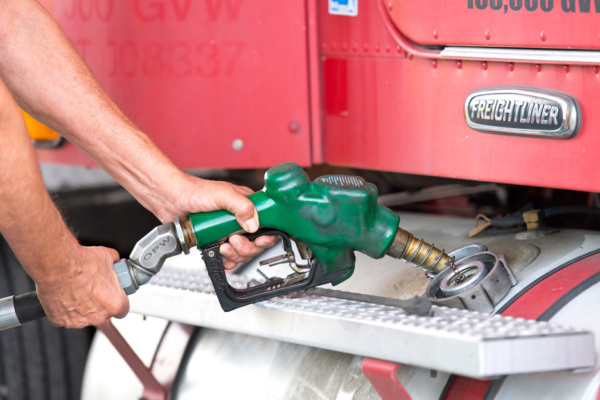Fleets’ usage of biodiesel is becoming more common but perhaps you’re still hearing some concerns. Here’s the truth: Biodiesel is worth learning about and I can dispel some of the myths you’re hearing.
You’ve heard: Biodiesel doesn’t perform well in cold weather.
The truth: Blends up to B20 (that’s 20 percent biodiesel and 80 percent petroleum diesel) allow fleets to operate smoothly, even in cold temps. Keep your fuel’s Cloud Point in mind, of course, but remember that proper storage, handling and additive usage can keep engines running just fine in the winter. Don’t just take my word for it — see why G&D Integrated runs its fleet on biodiesel blends.
You’ve heard: Switching to biodiesel blends is a major hassle.
The truth: Most of the time, no changes are necessary for retailers. Your existing storage tanks and infrastructure are good to go if you purchase the fuel already blended. If you prefer to blend your own, you may need a dedicated storage tank for B100 and a blending system, but the return on investment is typically realized quickly. The switch is also easy for your diesel customers. They can fill up with biodiesel blends and hit the road — no vehicle modifications needed.
You’ve heard: Biodiesel is a lower quality than petroleum diesel.
The truth: Biodiesel meets stringent standards, so rest assured you can get high-quality fuel that will make your customers happy. The fuel is backed by ASTM D6751 (a rigorous set of specs set by 2,500 industry experts), and the voluntary BQ-9000®* program goes even further, combining ASTM specs with additional quality assurance steps. Just like your other fuels, you’ll want a reliable supplier. Here are five tips to find a biodiesel supplier.
You’ve heard: Biodiesel does not perform as well as other fuels.
The truth: Biodiesel’s quality should put to rest any concerns about its performance but in case you need more evidence, here are a few things to consider. Biodiesel boasts higher Cetane than petroleum diesel, meaning a shorter ignition time. It also adds lubricity (which can’t be said for ULSD), helping lubricate the fuel injection system. And on top of all that, a 2018 study found that biodiesel reduces greenhouse gas emissions by at least 86 percent compared with petroleum diesel, helping your customers run cleaner and meet their sustainability goals.
You’ve heard: Biodiesel leads to water in storage tanks.
The truth: No fuel can create water, including biodiesel. Also, dissolved water isn’t the issue — free water is the problem. If there is a way for free water (like rain or condensation) to get into a fuel storage tank, it will. And once a fuel tank has free water in it, it’s likely to cause issues. That’s why it’s essential to keep tanks clean and dry, regardless of fuel type.
What other concerns have you heard about biodiesel that we might be able to address? Email me at steve.klein@regi.com and let’s discuss.
// Renewable Energy Group is leading the energy industry’s transition to sustainability by transforming renewable resources into high-quality, cleaner fuels. REG is an international producer of cleaner fuels and North America’s largest producer of biodiesel. REG utilizes an integrated procurement, distribution and logistics network to operate 13 biorefineries. REG is meeting the growing global demand for lower-carbon fuels and leading the way to a more sustainable future. Learn more about Renewable Energy Group.
*BQ-9000 is a licensed trademark of the National Biodiesel Board, used with permission.
Subscribe to Updates
NATSO provides a breadth of information created to strengthen travel plazas’ ability to meet the needs of the travelling public in an age of disruption. This includes knowledge filled blog posts, articles and publications. If you would like to receive a digest of blog post and articles directly in your inbox, please provide your name, email and the frequency of the updates you want to receive the email digest.



